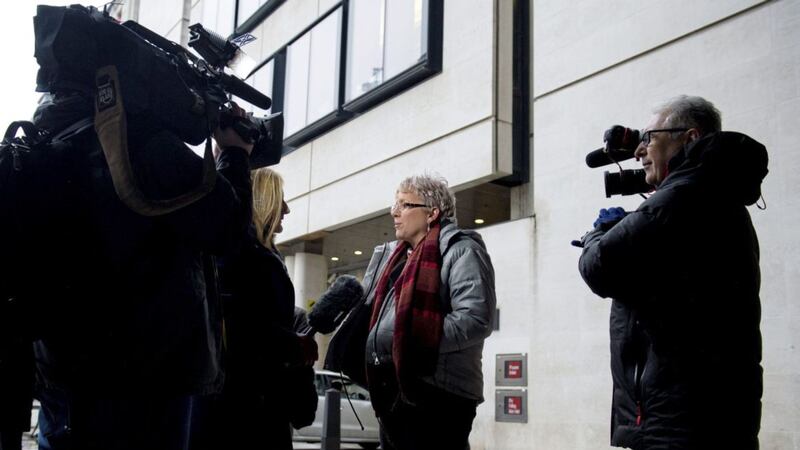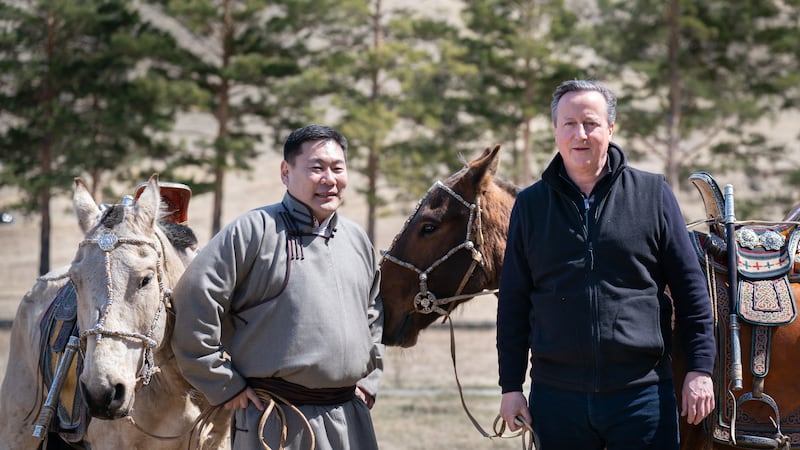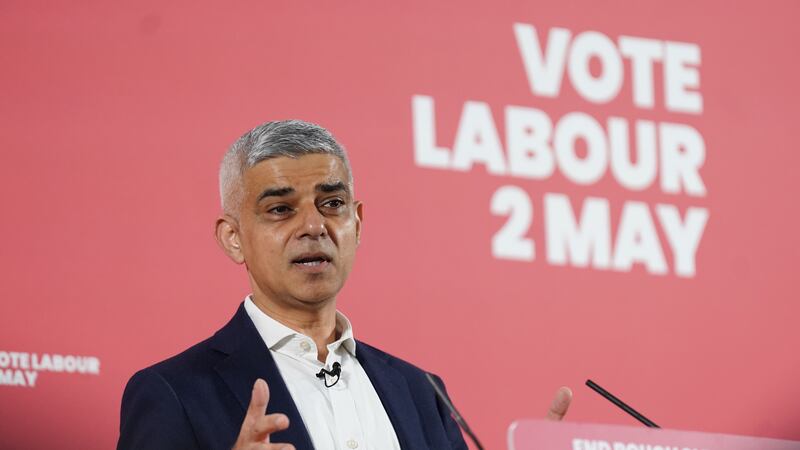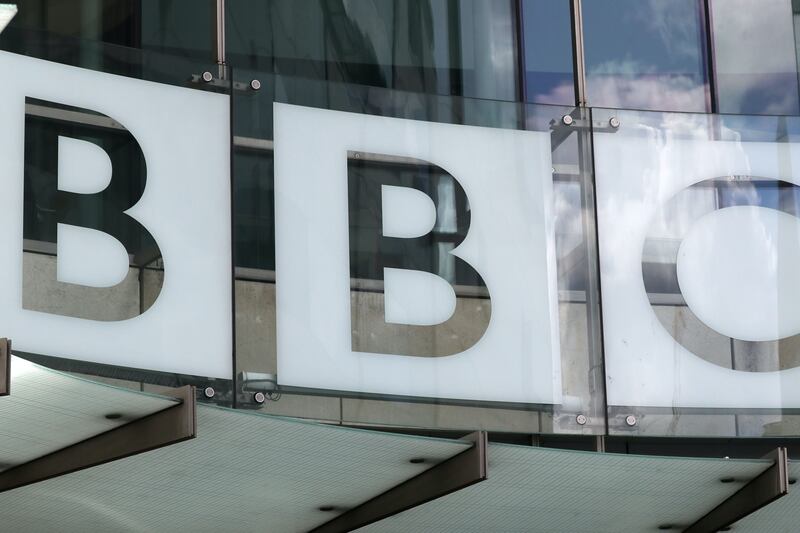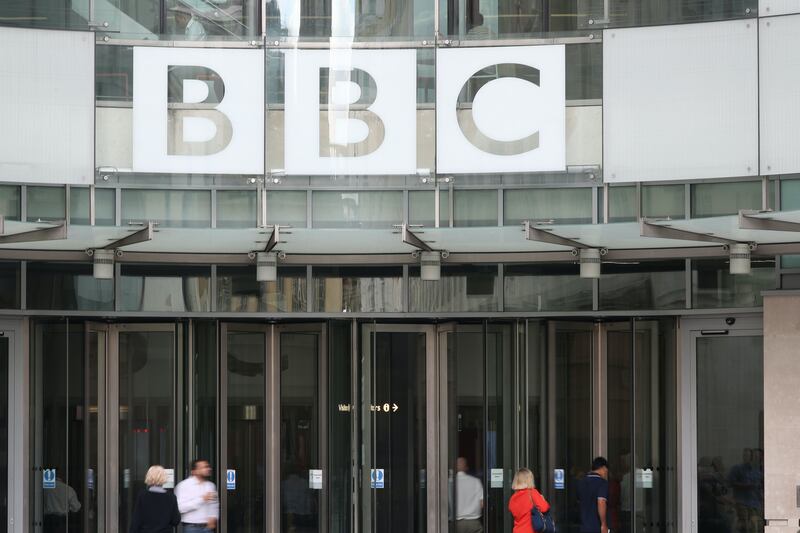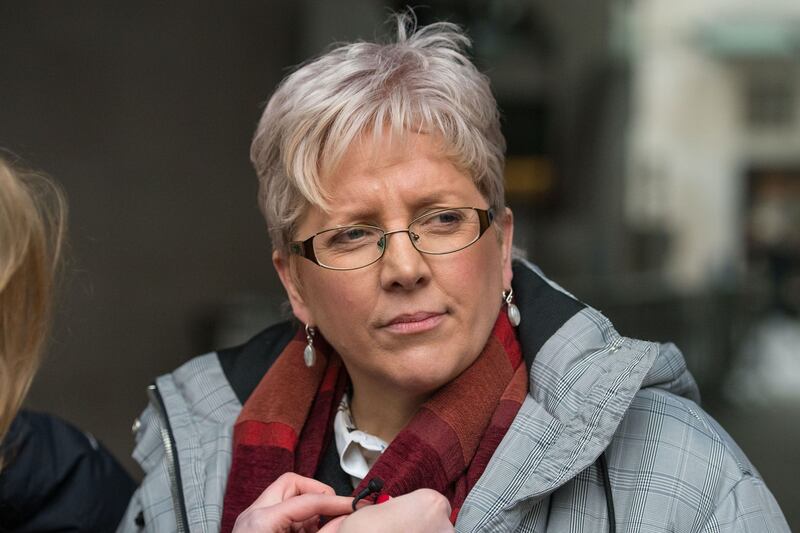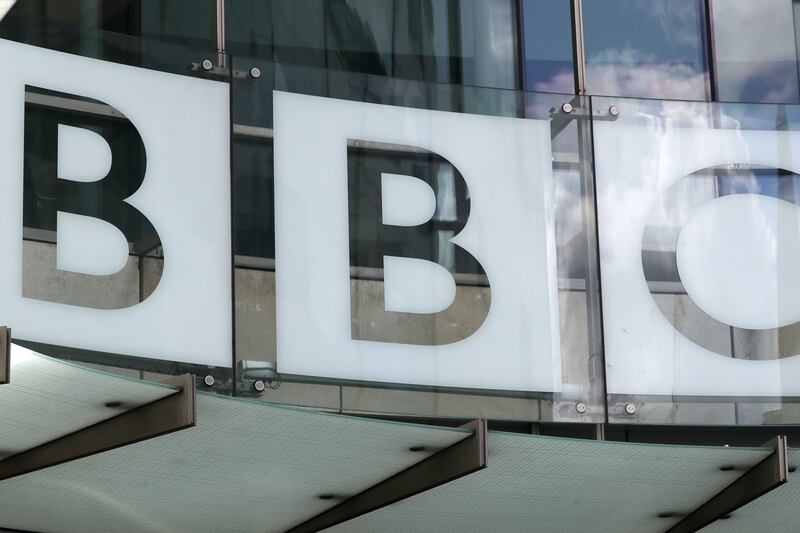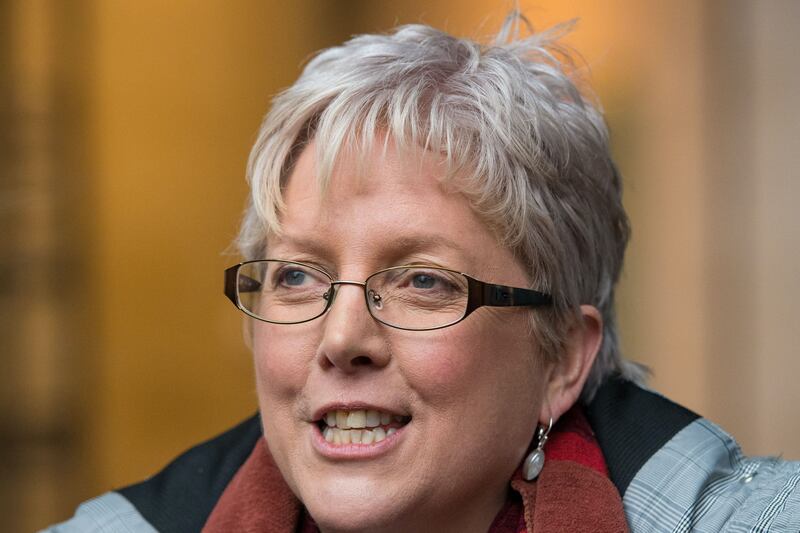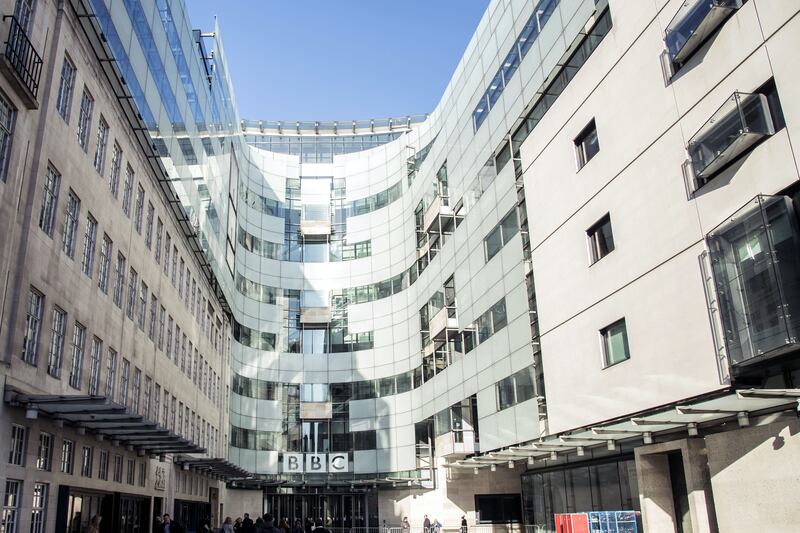Journalist Carrie Gracie turned down a £45,000 rise, describing the offer as a "botched solution" to the problem of unequal pay at the BBC.
Gracie said she told the corporation she wanted equality, rather than more money, and was determined not to help the organisation "perpetuate a failing pay structure by discriminating against women".
Following her very public resignation as BBC China editor, Ms Gracie has received much support, including from colleagues both male and female.
Appearing on BBC Woman's Hour, she said: "My pay, as you may know, is £135,000. The BBC offered to raise that to £180,000. However, I was not interested in more money. I was interested in equality and I kept saying to my managers that I didn't need more money, I just needed to be made equal and that can be done in a variety of ways."
Ms Gracie, who was interviewed by freelance journalist Jane Martinson due to broadcasting impartiality rules preventing show host Jane Garvey from doing so, said she became frustrated by the pay rise offer made last October.
She said: "I didn't feel that it was a solution, I felt it was a divide-and-rule, botched solution that would not make the BBC better. And I do love the BBC."
Explaining her decision to resign, she said: "I could not go back to China and collude knowingly in what I consider to be unlawful pay discrimination. I could not do it, nor could I stay silent and watch the BBC perpetuate a failing pay structure by discriminating against women."
In a letter published earlier, addressed to the BBC Audience, she explained that she would be returning to her former post in the TV newsroom "where I expect to be paid equally".
On the issue of whether pay should be slashed, she told Martinson: "I believe in public service broadcasting, and I do think, as you will have seen from my letter, I do think salaries at the top are unacceptably high, both for presenters and stars of various kinds, and also for managers actually."
But she said did not have the information to enable her to say what needs to be done, criticising the BBC for being "a secretive organisation" on pay, which she added makes it difficult for women to know whether the corporation is applying the law in individual instances.
Clare Balding, Emily Maitlis and Sarah Montague were among a string of prominent colleagues to voice their support for Gracie, who said the corporation was facing "a crisis of trust" by not paying its male and female workers equally.
Asked whether Theresa May shared Ms Gracie's concerns about the gender pay gap at the BBC, the prime minister's official spokesman said: "The prime minister has been very clear that tackling injustices like the gender pay gap is part of her determination to build a country that works for everyone.
"The prime minister has said she wants to see women paid equally with men, and that it's important the BBC carries on publishing figures in the future so that we can see the progress that they are making."
The BBC has said it is performing "considerably better" than other organisations on gender pay, although a group representing women at the corporation said it knew of up to 200 who had lodged complaints.
After tweeting "wish me luck" earlier on Monday morning, Ms Gracie was back on air presenting BBC Radio 4's Today programme alongside John Humphrys, the BBC's highest-paid news presenter with a salary of between £600,000 and £649,999.
Making a short statement, in light of the fact Mr Humphrys, under the impartiality rules, could not interview her, Ms Gracie said she was "moved" by the reaction from people.
"I think the scale of feeling, not just among BBC women but also just more widely across the country and also internationally, the support that I've had in the last few hours over this, I think it does speak to the depth of hunger for an equal, fair and transparent pay system.
"And the other thing I'd like to say is that what is lovely for me is that people are mentioning my China work, because I would not wish to be remembered forever as the woman who complained about money."
Mr Humphrys then joked: "Too late, too late."
Ms Gracie went on: "I want to be remembered as the person who did fine China work, and enough people are saying that for me to feel that that will not get buried as a result."
Ms Humphrys replied: "Well, and they would be right too, some fine China work."
The BBC's chief international correspondent Lyse Doucet, Today presenter Sarah Montague, and Ms Garvey all described Gracie as "brave and brilliant".
BBC News presenter Simon McCoy tweeted: "My brilliant friend @BBCCarrie has my full support. 150 per cent."
Senior journalists from rival broadcasters also backed Gracie, among them Channel 4 News presenter Cathy Newman, who said it was "a tragedy for the @BBC to lose such a talented China Editor #equalpay"
Meanwhile, a number of MPs voiced their support, including Labour's Harriet Harman, Jess Phillips and Barbara Keeley and Conservative MP Nadine Dorries.
Michelle Stanistreet, general secretary of the National Union of Journalists (NUJ), said it was "determined to hold the BBC to account".
She praised Ms Gracie, an NUJ member, for making a "difficult decision" to speak out against "the injustice wrought upon her by her own employer".
The journalist, who has been with the BBC for 30 years and described leading its China coverage since 2004 as "the greatest privilege of my career", stated her concerns in a letter addressed to the "BBC Audience".
In her letter Ms Gracie said she had learned last year that of the four international editors in the past four years at the corporation, two males had earned more than their female counterparts.
In the pay disclosure last year North America editor Jonathan Sopel was listed as having a salary of between £200,000 and £249,999, while Middle East editor Jeremy Bowen earned between £150,000 and £199,999.
Europe editor Katya Adler, like Ms Gracie, did not make the list.
Adler tweeted: "Huge loss to BBC international news. I will miss @bbccarrie by my side as only other female editor in foreign news#bbcwomen #equalpay #istandwithcarrie"
A BBC spokesman said: "Fairness in pay is vital. A significant number of organisations have now published their gender pay figures showing that we are performing considerably better than many and are well below the national average."
The spokesman also highlighted the broadcaster's independent judge-led pay audit for "rank and file" staff which showed "no systemic discrimination against women" and said a separate report for on-air staff would be published "in the not too distant future".
Up to 200 women at various levels of the organisation have made complaints about pay, according to BBC Women, a group of more than 150 broadcasters and producers.
The BBC confirmed it had reminded staff that those who have publicly expressed a view on a particular issue are not permitted to conduct interviews on that issue, as per the corporation's editorial guidelines.
